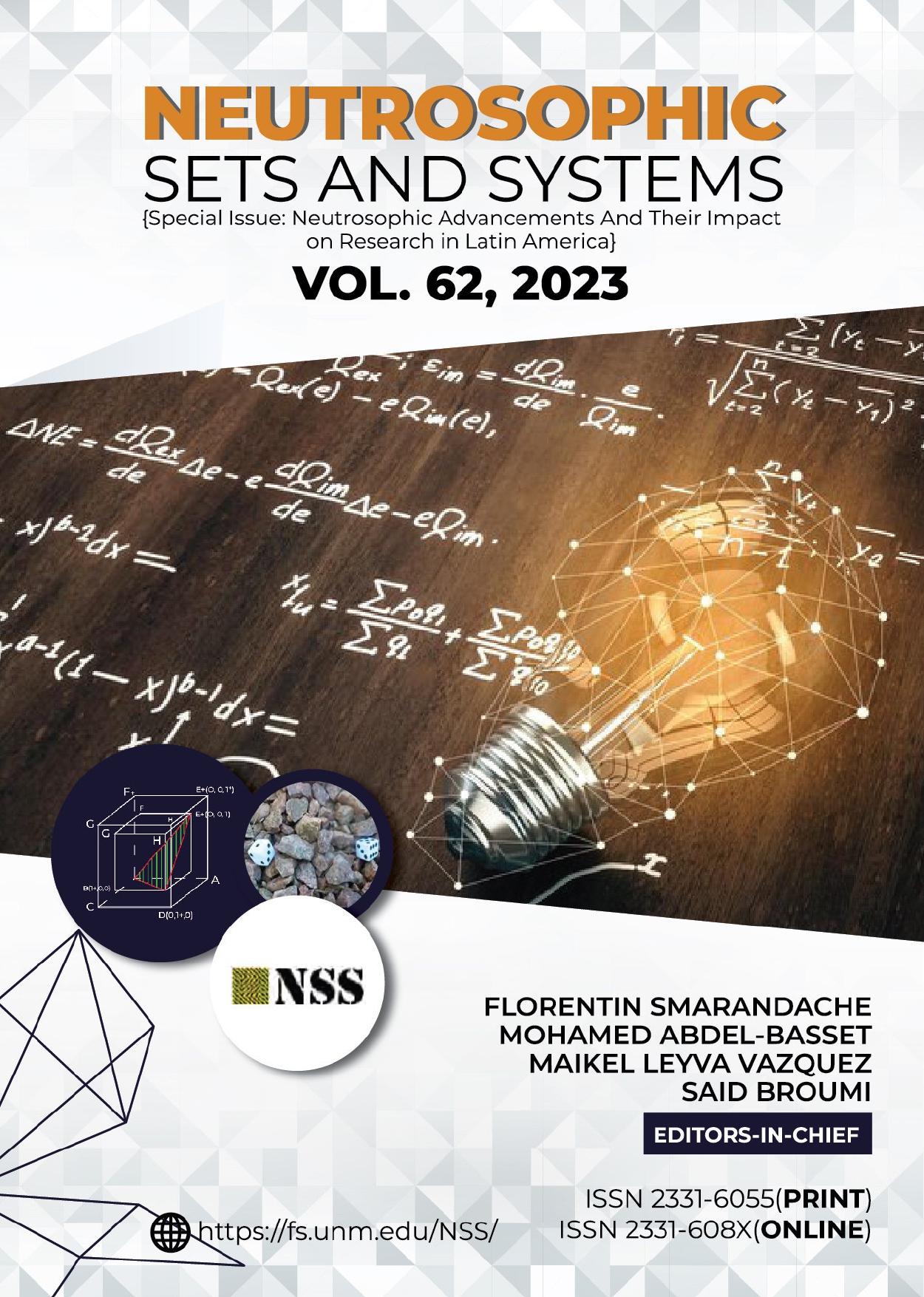A hybrid of ARAS and neutrosophic 2-tuple linguistic model to evaluate gender equitable policies from the perspective of Latin American professor’s
Keywords:
Gender equality, equal opportunities, equal rights, public policies, Additive Ratio Assessment System (ARAS), neutrosophic linguistic 2-tuple modelAbstract
This paper aims to introduce a hybrid model between the Additive Ratio Assessment System (ARAS) method and the
neutrosophic 2-tuples linguistic model. ARAS is used to make complex decisions by comparing the collected data with optimal
values. The neutrosophic 2-tuple linguistic model allows the inclusion of indeterminacy in addition to uncertainty for computa
tion with words. The hybridization of both models allows us to make decision with evaluations based on linguistic scales, which
is a natural way of deciding by human beings. This new model is applied to measure the implementation of gender-equitable
policies in Latin America. The results of the analysis of public gender equity policies are presented from the perception of
university professors from Peru, Colombia, Costa Rica, Argentina, Chile, El Salvador, Mexico, and Ecuador. The discoveries
reveal that in all age groups until adulthood, there has always been gender discrimination in various aspects such as health,
education, work, family, and mainly socially. Latin American countries have sexist roots, however they also seek to guarantee
the implementation of effective public policies for gender equality in all sectors of society.
Downloads
Downloads
Published
Issue
Section
License
Copyright (c) 2023 Neutrosophic Sets and Systems

This work is licensed under a Creative Commons Attribution-NonCommercial-ShareAlike 4.0 International License.







